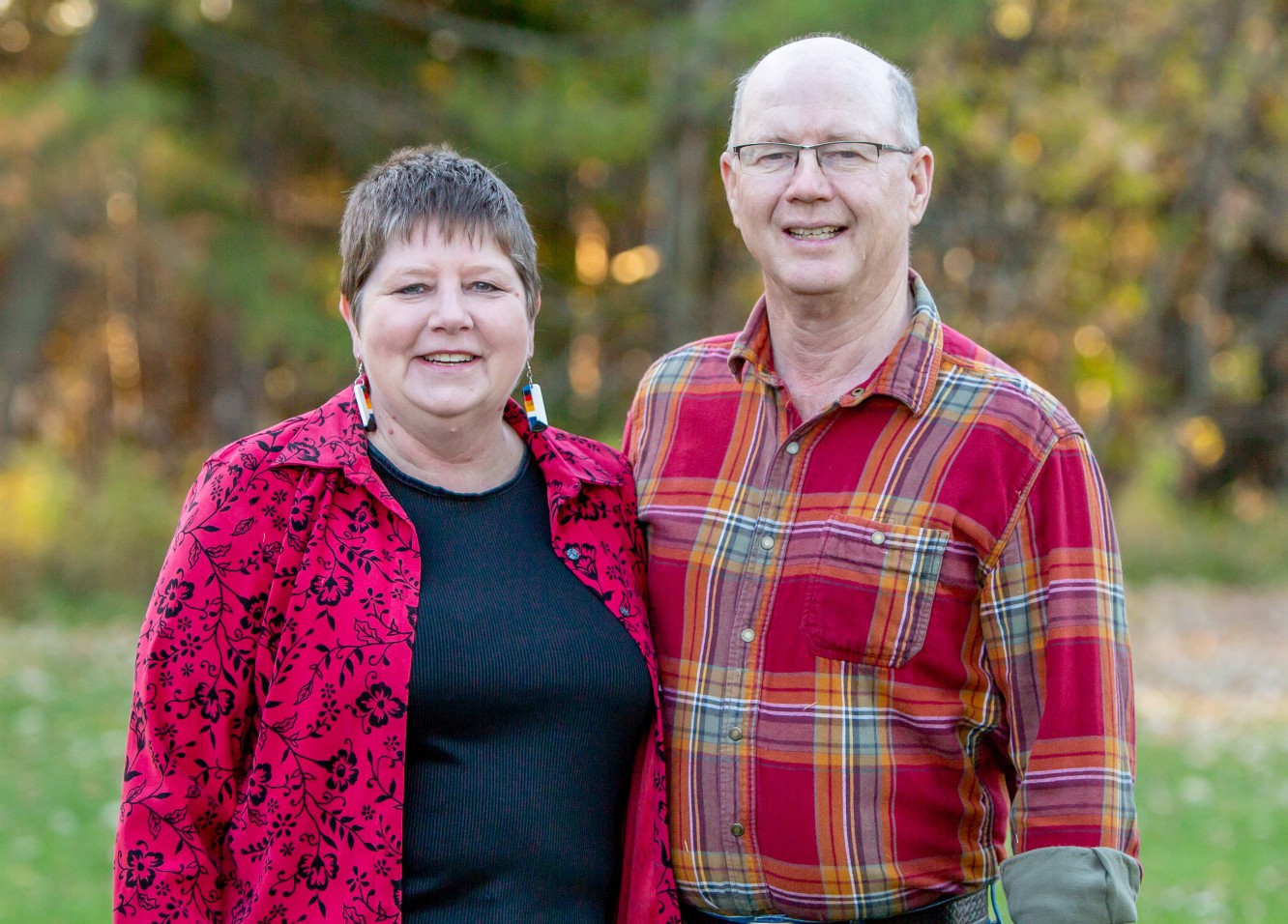
Creative power through adversity
Long-time clients Pat and Kim Cornell are energetic, entrepreneurial and visionary farmers who’ve taken their family business in bold new directions.
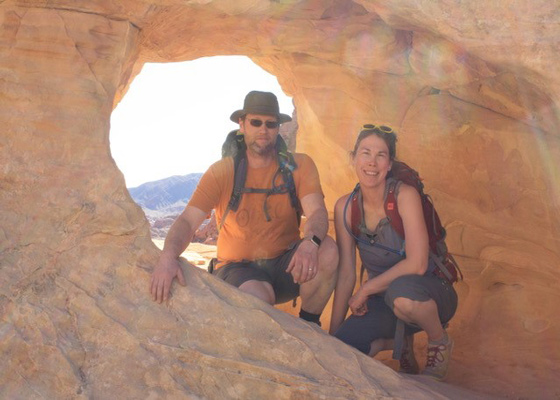
How a Peer Group keeps this farm business looking forward
Over the past five years, Dustin Burns and Kristi Nylen-Burns have been inspired and energized by having confidential, goal-oriented discussions with like-minded farmers. Here’s their story.
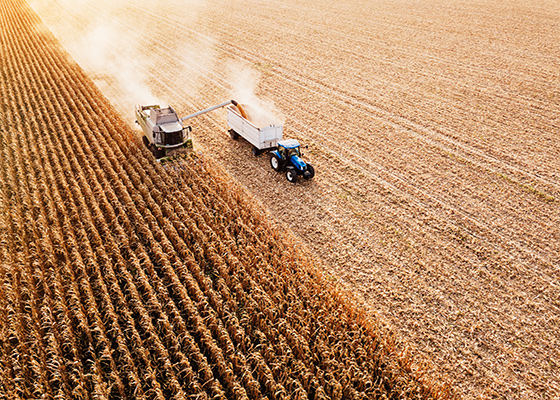
Smooth operations and a well-planned future
Chris Kletke has worked closely with Backswath since 2010, both on day-to-day operations and longer-term strategic planning. Now, he’s poised for growth.
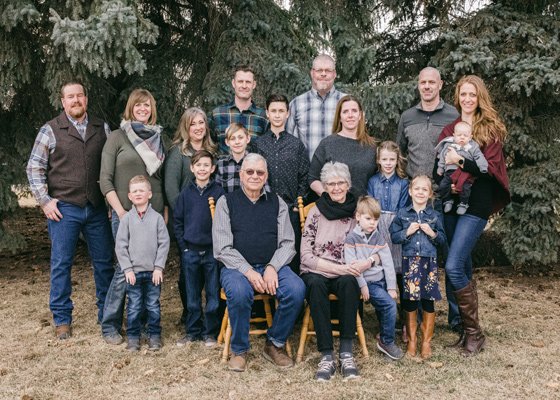
A long-term plan built on solid ground
With an assist from Backswath, this Alberta farm family set up a solid partnership between its two generations, a robust financial base for operations and the flexibility to capture future opportunity.
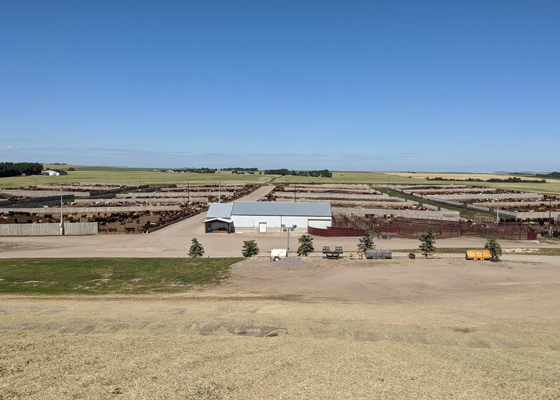
Steady support, honest advice helps this farm stay on track
For the past 10 years, the Klassen family has looked to Backswath for expertise and straight answers in finance, business planning, succession and more.
In the 45 years since John and Linda Burns came home to farm near Wynyard, Sask., Windy Poplars Farm has always been about more than growing crops.
“They were progressive from the start,” says their daughter-in-law Kristi Nylen-Burns. “They focused on education and trying new farming techniques— and they passed that along to the rest of us.”
Today, the farm includes Kristi and husband Dustin Burns, Dustin’s brother Tyler and wife Janelle and partners Doug and Bonita Reeve.
Some innovations at Windy Poplars Farm occur in the field. As one example, the farm now has two growing seasons under its belt with the DOT autonomous platform and 30-ft. Seed Master seeding unit.
Another game-changing innovation goes back to 2015. That’s the year Kristi and Dustin joined a farmer Peer-to-Peer Network Group (Peer Group for short) organized and moderated by Backswath Management.
The Power of Peers
Backswath’s Peer Groups bring together carefully chosen small groups of producers for guided, confidential, results-focused discussion. The program is open to farm operations of all types and sizes. Backswath matches individual farms with others with compatible operations, so that discussions are as relevant as possible.
Kristi and Dustin were matched with a group of prairie producers – couples as well as individuals – who share an interest in technology and innovation.
Discussions relate directly to personal and business goals identified by the group, and the steps needed to achieve them. Backswath also brings in speakers and workshop leaders to guide the members through specialized topics such as succession planning and human resources.
Dustin and Kristi’s group is moderated by Backswath President and CEO Terry Betker. As they see it, he helps the group achieve far more than a casual conversation between farming neighbors could.
“Having a skilled facilitator is critical,” says Dustin. “There are different personalities around the table, so Terry draws people out and keeps the discussion productive and group members accountable. Even though he doesn’t say a lot in the discussions, there’s a real skill there.”
Member Relationships Deepen with Time
Pre-COVID, meetings took place in person and lasted a full day, plus an evening meal and social gathering. Since COVID hit, the meeting format has changed to a virtual approach. The group has carried on socially via WhatsApp and looks forward to meeting in person as soon as possible.
“We’ve really missed it,” says Kristi. “Partly that’s because, it’s not all about business. People have a level of care for each other. Someone could be having a struggle with a family member or be facing a difficult farming situation. People will offer help and support and check in with each other later.”
To be successful, a peer group discussion demands openness and a willingness to share business information in a confidential setting. That’s different than a casual chat about farming at a local sports or ag event. Finding producers in your area whose interests align closely with yours can be a challenge, but not impossible.
“This is a completely different feeling than sitting down with your neighbors,” says Dustin. “For one thing, there’s absolutely zero competition within the group. You won’t be bidding on the same piece of land, for instance. The way it’s structured removes any inherent competition from the discussion and I think that’s so important.”
Return on Investment
For Dustin and Kristi, their Peer Group meetings require 36 hours away from the farm, which includes travel time. What’s really exciting, though, is what happens when they arrive home.
“When we come back, we’re energized,” says Dustin. “We want to dig into all those challenging things that you put aside when you’re busy with farming. We want to tackle those. It’s about working on the business vs working in the business.”
The investment in a Backswath Management Peer Group is two-fold. There’s a fee to participate, which covers the cost of group formation and communication, meeting moderation and outside resources such as speakers. There’s also the investment in time of being away from a busy farm and doing the thinking and planning needed between meetings to ensure group and individual goals are met.
Hour for hour, dollar for dollar, it’s an investment this innovative farm couple is glad to make.
“It has helped us become better farmers and better business managers,” says Kristi. “We have not found another farming tool that has given the kind of value that we have found with our Peer Group, both for the money and time invested. I’m not sure we have anything else that can rival that.”
For more information about Backswath’s Peer Groups, visit our website, send an email to or call 204-275-0458.
When customers pull into Kletke Hay & Straw in Brunkild, Man., they see a farm business that’s running on all cylinders. The company specializes in selling high-quality wheat straw to dairy operations in Western Canada and the U.S. Midwest.
Owner Chris Kletke wants the business’s day-to-day operations running smoothly, but he also has one foot planted firmly in the future. A close working relationship with Backswath Management helps with both missions.
Chris has known Backswath’s President and CEO Terry Betker for the better part of 15 years. The relationship took on a new dimension in 2010 when Chris took charge of Kletke Hay & Straw at age 28, upon the death of his father.
“There was a need to structure my current business, along with dealing with the estate,” says Chris, “and merge all of those interests into a manageable package for me to move forward and grow as a business owner. That’s where Backswath came in.”
With current operations put on solid footing, it wasn’t long before Chris was looking ahead to the next challenge. With Terry’s advice, Chris formed an Advisory Board to ensure he had the business counsel he needed. By 2017, he’d completed Kletke Hay & Straw’s first strategic plan, and continues to refine this plan with each passing year.
Of course, without success and profit in the here and now, even the best strategic thinking will come up short. It takes capital earned today to fund growth tomorrow. Chris has also relied on Backswath for operational advice and support. While Terry has been Backswath’s strategic lead with Kletke Hay & Straw, several other Backswath team members have been intimately involved. Chris likes the deep bench he can call on when required.
“As our business has grown, it’s been imperative that our systems and processes grow with it,” he says. “I’ve used Backswath for many different functions: from day-to-day business advisement, data processing, bookkeeping, to utilizing a contract controller and for longer-term strategic planning. With Backswath, you’re not just getting access to one person but a team of advisors with a broad depth of skillsets.”
With a solid business structure, efficient operations and a formal strategic plan all in place, Chris Kletke is focused squarely on the future of Kletke Hay & Straw.
“We’re growing,” he says. “The business is at a point now where, if we want to grow further, we need to change the way we do things in some areas. Like many primary producers, I’m programmed for operations first. I’m challenging myself to step away from operations, by carving out a senior role as business owner, while management takes care of operations. That way, we can continue to do what we do well today and grow at the same time.”
Ten years ago, Gary Flitton looked around his family farm and thought it might be at a turning point.
As the third generation of Twin Valley Farms near Vulcan, Alberta, he was farming with his son Noel. At the time, the business was recovering strongly from a few tough years in the 1990s and seemed poised for even bigger things.
Then came the news that Gary’s son Ryan and his wife wanted to come home to farm. Now, there was no question about it: this family farm business was definitely at a turning point.
“I never thought in a million years he’d want to come back to the farm,” says Gary. “The farm had doubled in size over the previous few years, and Ryan felt strongly that we needed to take an objective look at what we were doing and put more structure to it.”
A partial answer came through a program called C-TEAM – short for Canadian Total Excellence in Agricultural Management – presented by the Ontario-based Agri-Food Management Excellence group. Gary, Noel and Ryan all participated in the four-session program.
There they met Terry Betker, President and CEO of Backswath Management, who was a guest speaker at one of the sessions.
“We decided that we would like someone to look at our operation,” says Gary, “and give us an objective view of where we are and what needs to improve.”
In the years that followed, Terry met periodically with members of the Flitton family to help them accelerate their farm business’s performance in the short term and chart their course for the future.
“Terry helped us redefine our goals,” says Gary, “going all the way back to the basics, like, why are we here and what do we all want to get out of farming?”
Family farming, of course, is as much about family as it is about farming. Beyond dollars and cents and acres and bushels, there’s a vital emotional component that’s part of the planning process. Easy and pleasant? No, not always.
“We learned how important it was to deal with issues that might have been holding us back, and make them a priority,” says Gary. “It can be difficult to deal with these topics, but Terry’s experience and non-judgmental demeanor coached us through that process extremely well.”
A key area for the family’s planning process was individual roles and responsibilities. They also finalized a formal shareholder agreement that spelled out a process to follow in case anyone wants to leave.
“Having a clear exit strategy is really important so that people don’t feel trapped,” says Gary. “If anyone chose to leave at any point, they could do so, and it wouldn’t cripple the operation.”
In terms of finance, working with Backswath allowed the Flittons to see just how far they’d come since the challenges of the 1990s. After comparing the financial position of Twin Valley Farms with industry benchmarks, Terry saw an opportunity.
“Terry kept saying, ‘you’re paying too much for your credit’,” says Gary. “He put the Regional Manager from a competing bank in touch with us. We provided our financials and along with Terry’s ratios and advice we received a very strong offer from that lender. Our lender chose to match it and a bit more. When I look at the dollars and cents of that financial change, which was really initiated by Terry, it’s huge.”
Apart from favorable rates, this new lending agreement meant that Gary and wife Bev would no longer need to personally guarantee the farm’s loans. Looking toward their retirement years, that felt liberating and energizing for the third generation and would allow the fourth generation to think boldly.
Looking around the farm in 2021, Gary and Bev Flitton have a strong but flexible partnership with their sons, a sound financial base for their operation and an opportunity to have the future they want. Backswath Management is proud to have played a small part.
Says Gary: “When I look at good investments we’ve made in our operation, working with Backswath is at the top of the list.”
With multiple family members, up to 18 employees and several distinct operations, it’s fair to say that Klassen Agriventures has a lot of moving parts to manage.
This grain and feedlot operation near Linden, Alberta is owned and managed by brothers Myron, Merle and Kevin Klassen and their families.
In a large operation such as this, simply getting the work done is a tall enough order. Still, by 2010 or so, the Klassens knew they needed to work on the business, not just in the business.
They connected with Terry Betker, President and CEO of Backswath Management. Since then, Backswath has been a consistent contributor to the business’s growth and success.
“We’ve been with Backswath more than 10 years now,” says Myron. “Terry came in as a business consultant and has helped us with succession, operations, finance, human resources and more. Put it this way: about the only thing he doesn’t do is ask when we’re seeding the home quarter.”
Initially, the succession discussion involved the three brothers taking the reins from their father. That led to a strategic exercise exploring where the brothers would take the business, and how to divide responsibilities among them.
“Terry helped us look at the macro level, the big picture, in terms of where we want to be in 10 or 15 years,” says Myron. “We set year-to-year goals as well as long-term goals. Terry is very good at that. With the number of employees we have, we’ve also had some HR challenges over the years and Terry has helped us deal with those.”
The Klassens see financial management as a strength of their operation and have looked to Backswath for support in this area as well. Backswath Financial Consultant Bruce Kirk has been involved the past year or more. Backswath’s Farmcaster farm business software (formerly known as Eagle) has been a productive tool for this business.
“Terry also has a very good rapport with our bank,” says Myron. “He’s been instrumental in maintaining our relationship with them, and also our accountant.”
Succession, strategy, finance and people are key drivers of farm business success. Backswath has helped the Klassens in all these areas. On the occasions when opinions differ between client and consultant, Myron is glad to see it.
“If we both agree, one of us isn’t needed,” he says. “I’m a firm believer that if your consultants are just yes men, there’s no point. Terry will push back, and we’ve never minded that.”
Backswath’s willingness to go above and beyond also brings value. Myron credits Backswath’s connections to lenders, specialized service providers and government program managers with making a major difference to his family’s business over the years.
As Myron Klassen looks around Klassen Agriventures today, he likes the progress made over the past 10 years. Backswath is proud to have a played a small part in their story.
“Backswath has been a good, steady presence for us in good times and in bad times,” says Myron. “Whether it’s connecting us with the right people, or using Farmcaster, or helping us look at our finances or succession planning – it’s been like day and night for our operation.”
“When something bad happens in farming, people have a choice. They can turn left and sell the business, or they can turn right and be creative.”
That’s Pat Cornell talking. She and her husband Kim operate Cornell Farms near Devlin, Ont., two hours south of Kenora. Founded in 1897 by Kim’s enterprising great-grandfather, the farm raises purebred and commercial cattle and sells natural beef products through regional farmers’ markets and online. The farm also has a grain component.
As Pat explains, the turning point in their time running the farm was the BSE crisis that started in mid-2003.
“We had been selling bred heifers to the Gaspésie region of Quebec, and doing well with it,” she says. “When that stopped because of BSE, we had an extra three truckloads of bred heifers. My father had run an abattoir and butcher shop, so I knew about the meat business. We had been dabbling in meat sales locally with three other partners. We decided to buy them out and ramp it up.”
The Cornells began selling meat products at farmers’ markets at Kenora, Sioux Lookout and Thunder Bay. The business grew significantly, earning Cornell Farms the Premier’s Agri-Food Innovation Excellence Award in 2008.
Working with Backswath
Back in the mid-1990s, Kim had contacted Backswath President Terry Betker about putting on a business management workshop for farmers in the area. That later led to Terry working with Cornell Farms, which he’s done the past 20 years. This work has included business management support, long-term strategic and business planning, support for intergenerational transition and more.
As Pat explains, Backswath does more than provide expertise and experience.
“Terry has a way about him that is calming and reassuring,” she says. “Sometimes, when you are in the midst of change, you need that. You need someone who can strip away the emotional part of the farm business, but still understand and acknowledge that emotional part. When we need that, Terry’s the one we call.”
New horizons beckon
As Pat sees it, northwestern Ontario is an under-the-radar tourism destination that’s on the verge of being discovered in a big way by Canadians and Americans alike.
The Cornells started a new venture called Century Barn Brewery and Beverage Company, named for the 100+ year-old, lovingly restored barn on their farm. Century Barn Brewing will be located 20 minutes down the road in Fort Frances. The Cornells are currently seeking investors. Terry has been steady source of expertise throughout Century Barn Brewing’s planning journey.
The Cornells are also, with support from Terry, planning for how to involve the next generation in the farm and/or brewery. Son Garnet and his wife Michelle, and daughter Rebecca and her spouse Kelsey, could play key roles in the future. Discussions have been ongoing, and Pat is optimistic.
“Sometimes parents need to hold onto the vision,” she says, “until the next generation is ready to make their choice.”
While Pat believes the brewery is a promising investment, she’s also thinking about what it can do for economic development in northwestern Ontario. A modern craft brewery with a young vibe could be an important piece.
“We feel that the older generation needs to be generous to attract young people back to the community,” she says, “and young people want cool places to go.”
What will the future hold for Cornell Farms? As Pat sees it, she and Kim have no shortage of options and plenty of runway ahead of them.
“We like to think we have 20 to 25 years to go,” she says. “We are fortunate to have three young, well-trained women employees, which allows us more time to work on the business versus in the business. Kim and I are both visionary in nature, with some level of risk tolerance, so we think there are interesting times ahead.”
You can learn more about Cornell Farms, and subscribe to their newsletter, at cornellfarms.ca.


